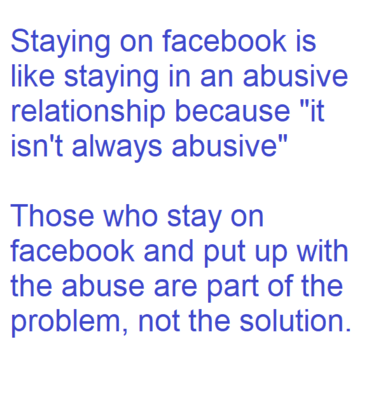Linux Unbiased
Due to a ruling of the Hamburg Regional Court, access to the "ytdl" website is blocked!
Debian General Resolution: Statement about the EU Legislation "Cyber Resilience Act and Product Liability Directive"
Black Axe Gang: Global Nigerian Underworld Group and Cyber Crime
The attack against Linux continues! GNOME receives 1 MILLION EUROS funding from the German Government!
GNOME Foundation Staff when they learn about the 1 Million Euros funding from the German Government…
A huge financial scandal erupted last week when news hit the internet that the German Government, via the Sovereign Tech Fund and the SPRIND Federal Agency for Disruptive Innovation funded GNOME with 1 MILLION EUROS.
The infamous and extremely buggy project GNOME is being fed with MILLIONS for years and the result is an indisputable EPIC FAIL.
All across the internet anyone can find substantiated articles about GNOME's EPIC FAIL and yet still the German Government funds it with fury...
Of course there is an Army of well paid GNOME Propagandists across the internet too but let's hear what the real users have to say:
One decade later, GNOME still sucks
A must read: GNOME Linux — A Complete Disaster?
GNOME 42 — The Nonsense Continues
Gnome 40 - The anti-desktop desktop
Why is Gnome Hated?
I tried to understand GNOME, and I failed at COSMIC tiling too; could I have some MATE again?
Don't forget that GNOME propaganda machine is heavily funded by companies.
GNOME is a free product made by GNOME Foundation, which is a non-profit company founded in 2000 by companies such as IBM, Sun Microsystems, Compaq and Red Hat. On its advisory board there are many big players, like Google, Canonical, Debian, SUSE and System76. Its annual income has been around 1 Million Dollars since 2018. Red Hat estimated that 70% of the code committed for GNOME comes from paid participants who work for other companies. So essentially this is not a bunch of volunteer geeks who like to code in the night just for fun, but rather a company with direct and indirect employees, managers, directors, deadlines and a product that needs to make a profit for its investors and shareholders.
It is important to remember all that when talking about GNOME...
Fun fact: In the GNOME Funding Reports page you see an "Older reports may be available upon request" note. Either they were too tired to put the older reports in the page... (creating a web link to a PDF file is so complex these days) ...or they are hiding something.
It is clear that GNOME developers produce a terrible and buggy product deliberately, in order to keep the money rolling into their pockets for ever, to destroy the Computer Desktop Metaphor and keep Linux away from the Mainstream Consumer Computer Market.
The desktop metaphor must be saved. It’s under attack!
It is clear that GNOME is raging to destroy the Linux Desktop Usability.
It's clear that GNOME Developers/Propagandists act as Agents of Chaos to the Linux landscape.
GNOME is not a Desktop Environment. It's a bad joke. A huge setback that has it's jaws on Linux and won't let go.
When we see a GNOME based distro we don't even bother anymore.
GNOME is based on Javascript and its every update breaks everything.
GNOME is bloated with bad design and buggy code. You need 100s of extentions and a very powerful PC to get somewhat close to a functional computer and yet it's still bloated with bugs.
Ubuntu Unity tried to be GNOME and failed. That's why Canonical trashed it. They are both touch driven and 99% of computers don't have touch screens.
GNOME has failed because that's what you get when you try to transform a computer into a Tablet/Smartphone.
Computers should not have a Smartphone interface. Computer Screens are too big for that.
Oversimplification defeats the purpose:
"Simple is good but if simple means crippled it's not simple man, it's stupid. I believe in KIUS (Keep It Usable Stupid) rather than KISS (Keep It Simple Stupid) because developers have turned KISS into KICS (Keep It Crippled Stupid)..."
GNOME goes against the Desktop Metaphor, the Linux Desktop Usability and the basic User Interface Principles of Xerox, on which the Mac User Interface was based on and revolutionized computing for ever.
GNOME and Ubuntu Unity do not even have desktop icons enabled by default!
You enter the default GNOME/Unity interface and there are no icons on Desktop for OS Disk, Computer, Network, Home Folder, Settings or Files you save on the Desktop.
Everything in GNOME/Unity reminds you of a Tablet/Smartphone and not a Computer.
The practical effect of using GNOME, is using less than 10% of the computer's (and thus of your brain's) potential, by wasting geometrically more time to do things in an amputated oversimplified and thus more complex way.
As we can't use a Tablet/Smartphone to it's optimum potential with a Computer interface, we can't use a Computer to it's optimum potential with a Tablet/Smartphone interface.
GNOME is the worst computer desktop interface ever because it's not intended for computers by design.
GNOME is losing the Linux game despite the millions of dollars flowing into it and they will try everything to delay their fall and keep the money coming.
With millions of dollars flowing in their pockets, of course it is a company covered by the "Non Profit Foundation" label.
If it wasn't for the millions of dollars flowing in their pockets GNOME would already be dead.
Furthermore, GNOME has nothing of a community. It's actually one of the least community-driven projects in the Linux world. Of course they go hard on their propaganda that it is, but we all know it's as fake a community as it gets.
The only people who use GNOME nowadays are GNOME developers, GNOME propagandists and employees who don't have any other choice.
Fun fact: At least 90% of Linux and FOSS websites, social media, YouTube channels and IRC channels, promote GNOME aggressively in one way or another and blatantly censor every opposite opinion.
This is no coincidence.
Lately they started promoting Apps written with "libadwaita", which is a library written specifically for GNOME.
So they are writing Apps for GNOME and not Apps for Linux.
They are trying to take over Linux and replace it with GNOME.
GNOME wants us to surrender the Hardware and Software freedom that a Computer gives us and be enslaved to Tablets and Smartphones in which we can't control either the Hardware or the Software.
The raging propaganda of using Tablet/Smartphone Interface like GNOME in Computers is subconsciously pushing people to use their Tablets and Smartphones more than their Computers.
The subconscious message of using GNOME is: Since the interface is the same why use a Computer? Use a Tablet or Smartphone! It's more convenient, smaller and practical!
If they take away our Computers they take away our Freedom and our right to choose the Hardware and the Software we use.
If they take away our Computers they take away our weapons with which we defend our Freedom.
If they control the Hardware and the Software we use, they control us and we will be enslaved.
And that brings us to the Million Dollar question:
Why IBM, Sun Microsystems, Compaq, Red Hat, Google, Canonical, Debian, SUSE, Endless, The Document Foundation, Sugarlabs, System76 and the German Government throw Millions of Dollars to a proven failed project that destroys the Linux User Experience and the Computer User Experience?
Because GNOME was created to destroy and to discredit Linux. That's why it's so heavily funded.
GNOME is a well funded corpse and an ongoing disaster by design.
On GNOME, it all comes down to this: Either they can't deliver the product or they don't want to.
Either way they shouldn't be funded, unless there is another agenda behind the scenes...
If they were a private company they would be bankrupt in less than a year...
All those companies and the German Government have a lot of questions to answer on the GNOME funding but we seriously doubt they ever will...
Need we say more?
- 01 DIGITAL COLLECTIVE
"Linux Community" and the Linux Mafia Army
It's no secret that 99% of all those "Linux Community Websites & Linux YouTube Channels & Linux IRC Chat Channels", promote 5-10 Linux Distros out of 100's. This is not random.
And it goes deeper that that. The hostile behaviour of this "Linux Mafia Army" when you talk about other distros than the ones they push, is classic...
All those "Linux Community Websites & Linux YouTube Channels" sell your browsing data to 1000's of capitalist companies by spying on you via Cookies, so even in most Linux distros (FOSS or not) you are the product...
I am not saying that it's bad to want to make money, but if at the same time you are preaching Internet Freedom and FOSS, it's a bit hypocritical at best.
So, don't lecture us about the so called "Linux Community".
We know the subversive and covert tactics of your "Dark Web Gang": Online Mob/Swarm Misinformation, Online Mob/Swarm Slandering, Online Mob/Swarm Character Assassination, Online Mob/Swarm Psychological Operations, Online Mob/Swarm Sabotage.
You may have positioned yourself at the backbone of the internet, pulling strings from the shadows, but you are not invisible.
~ root
Google & Facebook fined for spying on users
MetaCompany: Facebook Stole Our Name and Livelihood
Hello, World!
We are Meta Company.
Original Flavor. 😊
For the last three months, Facebook lawyers have been hounding us to sell our name to them. We refused their offer on multiple bases. Namely, the low offer wouldn’t cover the costs of changing our name, and we insisted on knowing the client and intent, which they did not want to disclose.
At least two law firms were involved: One in the USA that requested our trademark and domains (Kilpatrick, Townsend & Stockton), and the other in Europe aggressively contacting trying to get us to sell our domain registrations (Hogan Lovells).
On October 20th, 2021, during a phone call with Facebook attorneys, we declined their low offer and maintained our requirements. At this point, we presumed it was Facebook and identified them on the call. The attorney representing Facebook declared they would respect our existing right and registration.
On October 28th, 2021, Facebook decided to commit trademark infringement and call themselves “Meta”.
They couldn’t buy us, so they tried to bury us by force of media. We shouldn't be surprised by these actions — from a company that continually says one thing and does another. Facebook and its operating officers are deceitful and acting in bad faith, not only towards us, but to all of humanity.
It's unfortunate to have been associated with a company so rooted in controversy and fixated on domination. We aim to be distinguished from Facebook's totalitarian view of the future. We hope the negative association with Facebook and its founder will be forgotten — but we won't ignore the damages done.
We have proceeded to file the necessary legal actions. This message may be regarded as a public cease and desist. We welcome your support.
One more thing: Our new product launch just got delayed because of Facebook. We must deal with these matters. In the coming weeks, we will make an announcement earlier than we expected. We promise it will be good. Stay tuned.
Thank You.
Sincerely,
Nate Skulic
Founder, MetaCompany
Media and press inquiries may be submitted to press@meta.company.
Why iLinux OS is not listed in DistroWatch?
Julian Assange: Debian Is Owned By The NSA?
(For Debian watch from 20:20)
https://igurublog.wordpress.com/2014/04/08/julian-assange-debian-is-owned-by-the-nsa/
Firefox Now Sends Your Address Bar Keystrokes to Mozilla
BAD TECHNOLOGY - BETA CULTURE: A Call for Revolution Against Beta Culture

I'm tired of this. This sense of permanent discomfort with the technology around me. The bugs. The compromises. The firmware upgrades. The "This will work in the next version." The "It's in our roadmap." The "Buy now and upgrade later." The patches. The new low development standards that make technology fail because it wasn't tested enough before reaching our hands. The feeling now extends to hardware: Everything is built to end up in the trash a year later, still half-baked, to make room for the next hardware revision. I'm tired of this beta culture that has spread like metastatic cancer in the last few years, starting with software from Google and others and ending up in almost every gadget and computer system around. We need a change.
Take the iPhone, for example, one of the most successful products in the history of consumer electronics. We like it, I love mine, but the fact is that the first generation was rushed out, lacking basic features that were added in later releases or are not here yet. Worse: The iPhone 3G was really broken. For real. Bad signal, dropped calls, frozen apps. This would have been unthinkable in cellphones just five years ago. They were simpler, for sure, but they were failure proof. Today's engineering and testing is a lot more sophisticated. In theory, products can't go out into distribution with such glaring problems undetected.
Another recent example is my iMac 24, which had the infamous video card problem out of the box. How can a machine with such an obvious problem—instantly detected by the user base—be sold like that? The same happened recently with Nvidia video boards. In fact, graphic cards—being always in the cutting edge of technology—are perfect examples of beta hardware being sold as final hardware, with many released with beta-quality drivers and requiring firmware patches.
From that to the now-universally-accepted Blue Screen of Death, from buggy Blu-ray players to the Xbox 360's red ring of death and PS3's bugs, even from kitchen ovens to faulty DSLR cameras, the list of troubled products is endless. Just this week, the eagerly anticipated BlackBerry Storm launched to mixed reviews, in part because of its crashy, apparently unfinished software.
On the other side, my parents have a Telefunken CRT TV and a Braun radio from the '70s which are still in working condition. They were first generation. They never failed. Compare that to my first plasma TV from Philips, which broke after less than a year of use. Mine wasn't the only one. The technology was too young to be released; it was still in beta state. Philips wanted to be the first in the world with a flat TV and beat the competition, so they released it. This probably wasn't a good move: Today, Philips' TV business is struggling, and is nonexistent in the US. Meanwhile, my Sinclair ZX Spectrum and Apple IIe from the 1980s still work like they did from day one, perfectly.
For sure, today's products are far more complex than those of 20 or 30 years ago. But back then, the manufacturing was also a lot worse. It was less automated, often purely manual, and imperfect. Today, in a world where automated factories run 24/7, there's less chance of error. Yet still, there are countless problems in the final products, and those problems affect every unit in an entire model line. In the age of manufacturing perfection, there are still major recalls concerning products that burn or break.
Clearly, the problem is the development process and the time to market, with product cycles shortened and corners cut to keep a continuous stream of cash flowing in. The rush to feed these cycles with increasingly more complex engineering seems to be at odds with shortened development and quality assurance processes, resulting in beta-state first-generation products. This beta culture, the same one that already plagues the web, breeds people who are willing to accept bugs in the name of cutting-edge gear.
Who's to blame? Google and their web apps? Apple and their iPhone 3G problems? Microsoft and their countless buggy versions of operating systems and the Xbox 360's RROD? Philips? Sony? Samsung? LG? We all are. The manufacturers, who are driven by a thirst to expand and satisfy their shareholders at all costs. The consumers, who are so thirsty to drink in the shiniest, newest technology that they are willing to sacrifice stability. And the press too, who pours more gasoline onto the consumerism bonfire by writing glowing reviews and often minimizing things that are simply not acceptable.
Personally, I'm tired of all this. But I'm mostly tired about the fact that it seems that we all have given up. Tired because now we see "upgrades" as an opportunity to protect our investment, but in reality, it's laziness and a poor job on the manufacturer part that we have accepted without questioning. Instead of calling foul play and refusing to participate, we keep buying.
That's the key: We have surrendered in the name of progress and marketing and product cycles and consumerism. Maybe those are good reasons, I don't know, but looking at the past, it feels like we are being conned. Deceived because the manufacturers of electronic products have taken our desire to progress faster and even embrace the web beta culture as an excuse to rush things to market, to blatantly admit bugs and the rushed features sets and sell the patches as upgrades.
Maybe the recession will put some order in this thirst of new stuff and change the product cycles. As the economy slows down, people will think twice before buying the latest and greatest; they'll keep older hardware for longer. Then, manufacturers will have to rethink their product lines, and lift their feet from the accelerator, which will result on slower cycles and better products. Maybe that's our ticket for better electronics that actually make sense.
Or maybe... maybe that will be another excuse for the manufacturer to cut even more corners and keep lowering prices so that consumers keep spending and ending up with worse products than we have now.
Source: http://gizmodo.com/5083371/a-call-for-revolution-against-beta-culture







